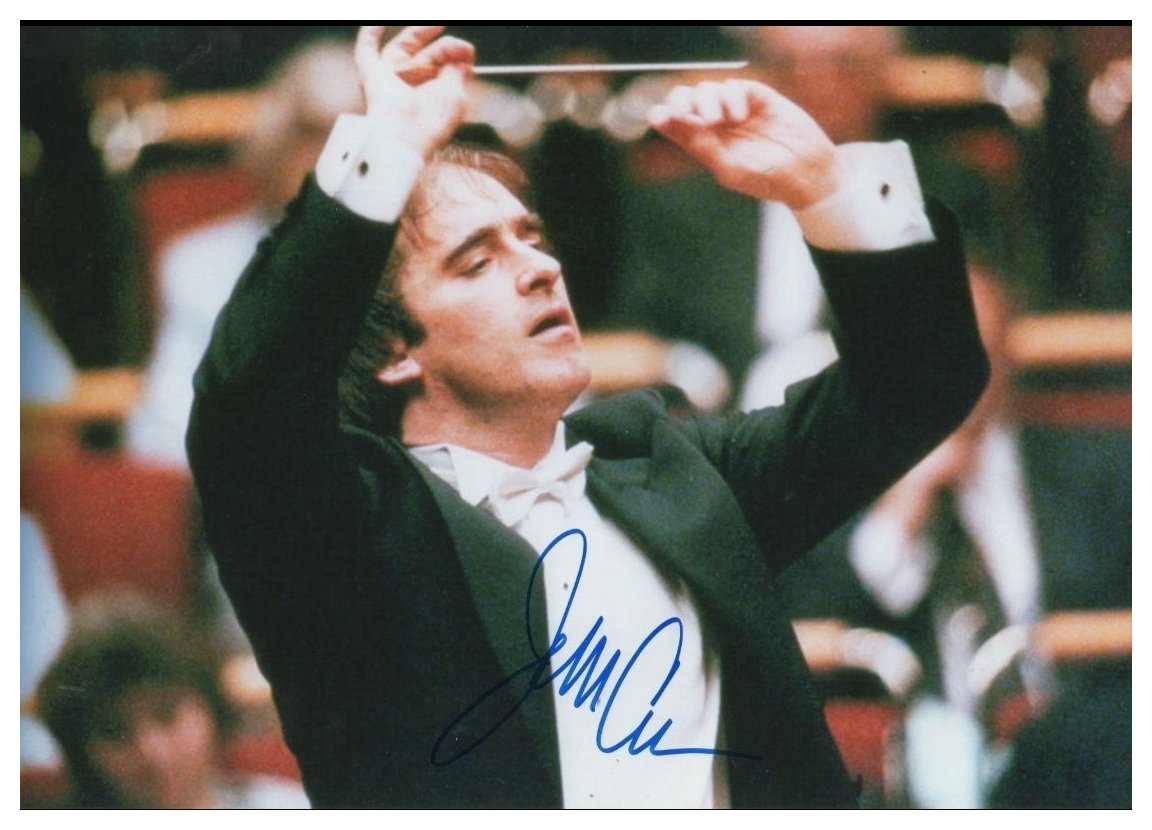

|
James Conlon
James Conlon (March 18, 1950 - ) is Music Director of the Los Angeles Opera and Principal Conductor of the RAI National Symphony Orchestra in Torino, Italy, where he is the first American to hold the position in the orchestra’s 84-year history. He served as Music Director of the Cincinnati May Festival for 37 years (1979–2016) holding one of the longest tenures of any director of an American classical music institution, and is now Conductor Laureate. Mr. Conlon has also served as Music Director of the Ravinia Festival, summer home of the Chicago Symphony (2006–15); Principal Conductor of the Paris National Opera (1995–2004); General Music Director of the City of Cologne, Germany (1989–2002), where he was Music Director of both the Gürzenich Orchestra Cologne and the Cologne Opera; and Music Director of the Rotterdam Philharmonic (1983–91). He has conducted more than 270 performances at the Metropolitan Opera since his debut there in 1976. He has also conducted at Teatro alla Scala, Wiener Staatsoper, Mariinsky Theatre, Royal Opera at Covent Garden in London, Teatro del Opera di Roma, Maggio Musicale Fiorentino, and Lyric Opera of Chicago. He is also known for his efforts in reviving music by composers suppressed during the Nazi regime. 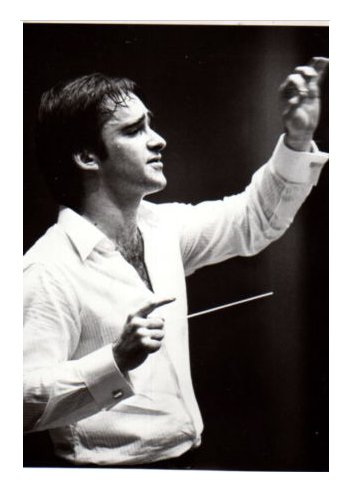 Conlon grew up in a family of five children on Cherry
Street in
Douglaston, Queens, New York City. His mother, Angeline L. Conlon, was
a freelance writer. His father was an assistant to the New York City
Commissioner of Labor in the Robert F. Wagner administration. His
siblings were not musically inclined, nor were his parents. When he was
eleven, he went to a production of La
Traviata by an amateur company
founded by the mother of a friend (Edith Mugdan, the mother of the
young Conlon's best friend, Walter Mugdan, and the founder of the North
Shore Opera). He asked for music lessons and became a boy soprano in a
children's chorus in an opera company in Queens. He dreamed about being
a tenor, then a baritone, and even wanted to sing the role of Carmen at
one point. Finally it dawned on him that the only way to do everything
in opera was to become an operatic conductor. Conlon grew up in a family of five children on Cherry
Street in
Douglaston, Queens, New York City. His mother, Angeline L. Conlon, was
a freelance writer. His father was an assistant to the New York City
Commissioner of Labor in the Robert F. Wagner administration. His
siblings were not musically inclined, nor were his parents. When he was
eleven, he went to a production of La
Traviata by an amateur company
founded by the mother of a friend (Edith Mugdan, the mother of the
young Conlon's best friend, Walter Mugdan, and the founder of the North
Shore Opera). He asked for music lessons and became a boy soprano in a
children's chorus in an opera company in Queens. He dreamed about being
a tenor, then a baritone, and even wanted to sing the role of Carmen at
one point. Finally it dawned on him that the only way to do everything
in opera was to become an operatic conductor.He entered the Fiorello H. La Guardia High School of Music & Art at the age of fifteen and at eighteen he was accepted into the Aspen Music Festival and School conducting program, and in September, 1968 he entered The Juilliard School of music. In 1970, the Juilliard Orchestra took an educational tour to Europe and he was invited to Spoleto the next year as an assistant doing work as a répétiteur, coach and chorus conductor. During that time, he conducted one performance of Boris Godunov. He recalled that he had fallen in love with this opera at a young age, and had dreamed that it would be the first opera he would conduct. In 1972, at a scheduled Juilliard production of La Bohème directed by Michael Cacoyannis, conductor Thomas Schippers suddenly pulled out. At the time, Maria Callas was doing a series of master classes at Juilliard and heard Conlon in rehearsal. She suggested to Juilliard's president, Peter Mennin, that Conlon should step in to conduct. Conlon received the conducting award of the American National Orchestral Association and in 1974, and at the invitation of Pierre Boulez, became the youngest conductor engaged for the New York Philharmonic Orchestra's subscription series. In 1976 he made his Metropolitan Opera debut, his British debut with the Scottish Opera, and in 1979 he debuted at Covent Garden. In an effort to raise public consciousness to the significance of works of composers whose lives and compositions were affected by the Holocaust, Conlon has devoted himself to extensive programming of this music in North America and Europe. This includes the works of such composers as Alexander von Zemlinsky, Viktor Ullmann, Pavel Haas, Kurt Weill, Erich Wolfgang Korngold, Karl Amadeus Hartmann, Erwin Schulhoff, and Ernst Krenek. In addition to Recovered Voices at LA Opera, as Music Director of the Ravinia Festival, each summer Conlon presented a different composer from this group with the Chicago Symphony Orchestra. -- Throughout this page, names which are
links refer to my Interviews elsewhere on my website. BD
|
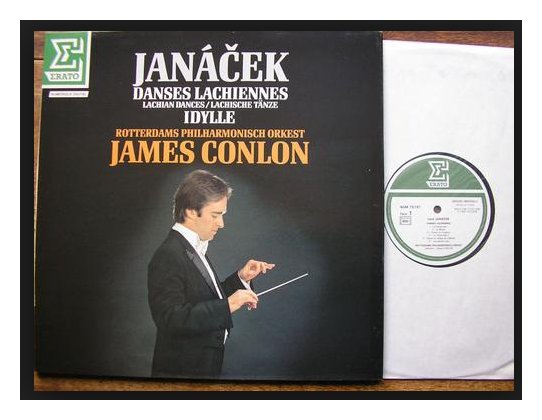 James Conlon: [With
a wink] ‘Winding
up’
insinuates that’s
the end of your life! It’s hardly the end of my life! [Both
laugh] I don’t think the fact that I’m young
or an American has to do with it. I don’t like
thinking in national terms either one way or the other.
Europe has been my spiritual base for some time,
and I’m already in my fifth season as the Music Director of
the Rotterdam Philharmonic. So I’ve been living half of my year
in
Holland and a great deal in Paris for quite some time now, and it’s
just a natural extension of that. I’m looking
forward to being the Chief Conductor of an opera house because it’s
probably my first love. Michael Hampe, the Intendant, invited me
when he realized that there was going to be an opening in this
position. He’d been trying to get me to come there on occasions
before, so he found a way to do it on a permanent basis.
James Conlon: [With
a wink] ‘Winding
up’
insinuates that’s
the end of your life! It’s hardly the end of my life! [Both
laugh] I don’t think the fact that I’m young
or an American has to do with it. I don’t like
thinking in national terms either one way or the other.
Europe has been my spiritual base for some time,
and I’m already in my fifth season as the Music Director of
the Rotterdam Philharmonic. So I’ve been living half of my year
in
Holland and a great deal in Paris for quite some time now, and it’s
just a natural extension of that. I’m looking
forward to being the Chief Conductor of an opera house because it’s
probably my first love. Michael Hampe, the Intendant, invited me
when he realized that there was going to be an opening in this
position. He’d been trying to get me to come there on occasions
before, so he found a way to do it on a permanent basis.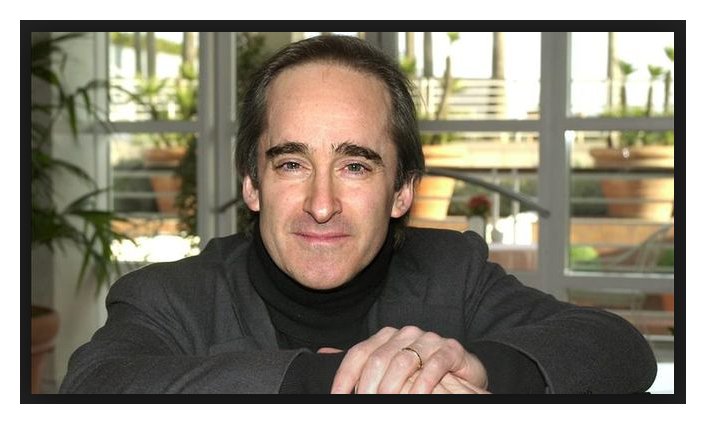
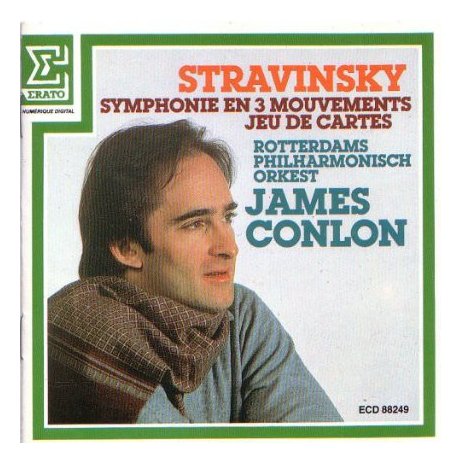 BD: Knowing that
Stravinsky himself has said
that, do you approach Stravinsky’s music any differently than other
composers?
BD: Knowing that
Stravinsky himself has said
that, do you approach Stravinsky’s music any differently than other
composers?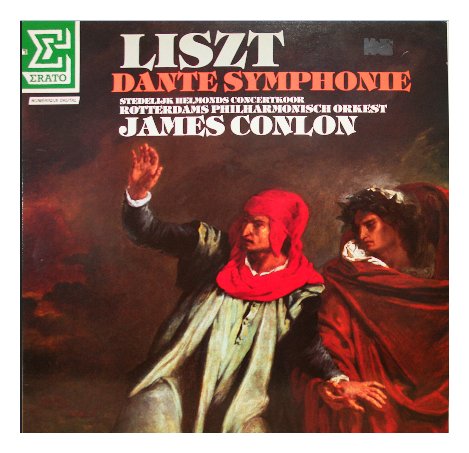 BD: Is this what
contributes to the greatness of a
work? That it transcends not only the time but the various looks
at it, and views towards it?
BD: Is this what
contributes to the greatness of a
work? That it transcends not only the time but the various looks
at it, and views towards it?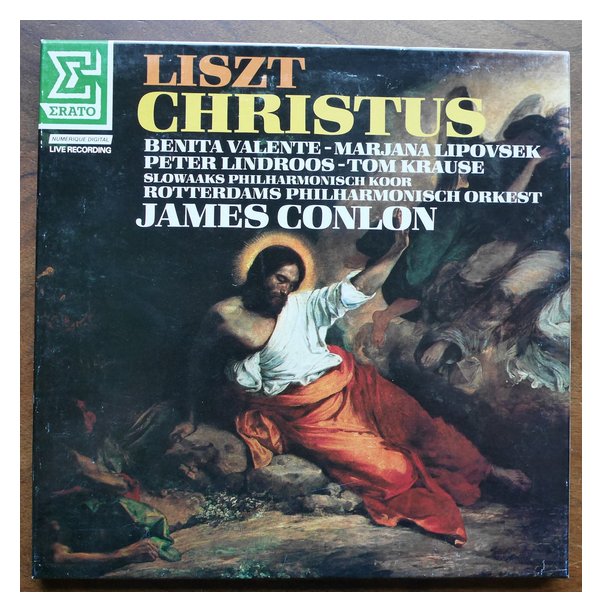 JC: Technically,
yes. The interpretative
is no different. The point is always the same — to
transmit the
work from composition through yourself to a hearer. It’s just
that the form of reception is different. When you’re in the
theater, there’s a proscenium, there’s an orchestra pit, there’s a
theater which is dark. You see a stage and you hear a sound
coming from below. That’s one setting. You know that
setting, so you learn to handle it technically in such a way that the
recipient — the audience — receives
the impression that you’re trying
to communicate to them. The recording is a slightly different
version of that. The recording is designed differently because a
person can hear it anywhere as long as they have the apparatus.
So presumably they’re sitting in their home where there are two
speakers. There’s nothing visual, and you have to get that
across, which can be more difficult and easier. On the one hand
you can say the person chooses that particular record at the
moment, so there need be no distractions. It does
not have to be shared with other persons. On the other hand,
one’s own home can be very distracting, so your challenge
there is to make that speak without the immediacy of the live
performance, and that’s the most important thing. It’s
got to seem live. I have only made one live recording, and that
happens to be Christus of
Liszt. I’m
very happy with the results. [Cover
shown at left. See my Interviews with Benita Valente and Tom Krause.]
But when I don’t do a live recording, I
try to make it seem as if it’s live. That is perhaps the most
tricky part of recording because, while you’re doing it and you’re
repeating things several times, it’s very easy for it to lose its
freshness. Part of the success of the
recordings that we’ve made in Rotterdam is that we don’t make them as
studio recordings, where you all meet each other, shake
hands, start the down-beat at 10 o’clock, and you have a finished
record after two sessions. We take music hot off the press.
In other words, we perform it. We perform it as often as we
can, and then we take it while it’s hot. At least for me in my
experience so far, it is ultimately the best way to
make something come to life, because it really is alive. You’re
not just there putting notes down for a microphone.
JC: Technically,
yes. The interpretative
is no different. The point is always the same — to
transmit the
work from composition through yourself to a hearer. It’s just
that the form of reception is different. When you’re in the
theater, there’s a proscenium, there’s an orchestra pit, there’s a
theater which is dark. You see a stage and you hear a sound
coming from below. That’s one setting. You know that
setting, so you learn to handle it technically in such a way that the
recipient — the audience — receives
the impression that you’re trying
to communicate to them. The recording is a slightly different
version of that. The recording is designed differently because a
person can hear it anywhere as long as they have the apparatus.
So presumably they’re sitting in their home where there are two
speakers. There’s nothing visual, and you have to get that
across, which can be more difficult and easier. On the one hand
you can say the person chooses that particular record at the
moment, so there need be no distractions. It does
not have to be shared with other persons. On the other hand,
one’s own home can be very distracting, so your challenge
there is to make that speak without the immediacy of the live
performance, and that’s the most important thing. It’s
got to seem live. I have only made one live recording, and that
happens to be Christus of
Liszt. I’m
very happy with the results. [Cover
shown at left. See my Interviews with Benita Valente and Tom Krause.]
But when I don’t do a live recording, I
try to make it seem as if it’s live. That is perhaps the most
tricky part of recording because, while you’re doing it and you’re
repeating things several times, it’s very easy for it to lose its
freshness. Part of the success of the
recordings that we’ve made in Rotterdam is that we don’t make them as
studio recordings, where you all meet each other, shake
hands, start the down-beat at 10 o’clock, and you have a finished
record after two sessions. We take music hot off the press.
In other words, we perform it. We perform it as often as we
can, and then we take it while it’s hot. At least for me in my
experience so far, it is ultimately the best way to
make something come to life, because it really is alive. You’re
not just there putting notes down for a microphone.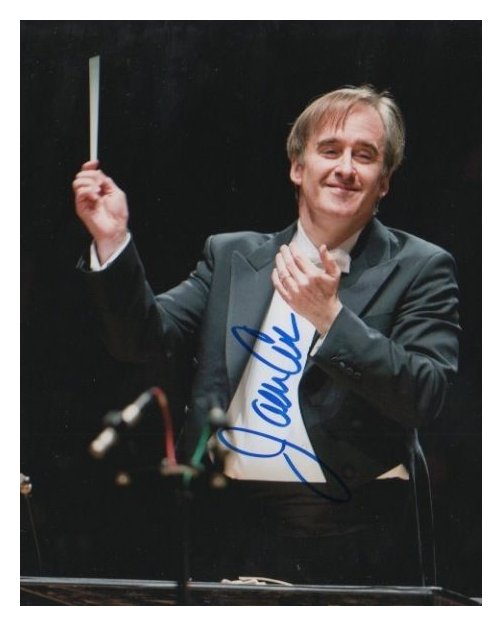 JC: Titans are
models to all of us. To speak of aspiring, no, because you cannot
be somebody other
than yourself, even if you want to, and you should not really want
to. Role models are
very important when you are a young person, a child or a
teenager. They are
inspiring. But as you get old, you see more that art is a
very peculiar, specific combination of individual time and place.
You have to accept your place, and know your own strengths and
your own limitations at any point in life to make great art. Yes,
I absolutely adore Toscanini, and he will always be
a model to me of absolute complete commitment to his work,
and his incredible technical means in which to achieve it, and his
personality. He will always be inspiring to
me. But the danger is when
you start to try to imitate, or even value limitation. Yes,
we do imitate unconsciously, just the way we
learn our own language. We don’t learn it because we understand
the grammar. We imitate out parents and certain people we
hear around us, and gradually we find what we want to say in
time. There’s nothing wrong with starting with
imitation. That’s the natural way to develop
as a musician. But in the end, we have found out own peculiar and
particular relationship with those compositions, and we come back to
subjectivity questions again. It will happen
gradually in and of its own accord. I don’t say to myself that I
want to be like that man, or I want to conduct like he conducts,
or I want my music to sound the way he wants it. No. You
can use, and should use, great human beings as models for a particular
way to dedicate yourself to a task, but further than that, you
can’t anyway.
JC: Titans are
models to all of us. To speak of aspiring, no, because you cannot
be somebody other
than yourself, even if you want to, and you should not really want
to. Role models are
very important when you are a young person, a child or a
teenager. They are
inspiring. But as you get old, you see more that art is a
very peculiar, specific combination of individual time and place.
You have to accept your place, and know your own strengths and
your own limitations at any point in life to make great art. Yes,
I absolutely adore Toscanini, and he will always be
a model to me of absolute complete commitment to his work,
and his incredible technical means in which to achieve it, and his
personality. He will always be inspiring to
me. But the danger is when
you start to try to imitate, or even value limitation. Yes,
we do imitate unconsciously, just the way we
learn our own language. We don’t learn it because we understand
the grammar. We imitate out parents and certain people we
hear around us, and gradually we find what we want to say in
time. There’s nothing wrong with starting with
imitation. That’s the natural way to develop
as a musician. But in the end, we have found out own peculiar and
particular relationship with those compositions, and we come back to
subjectivity questions again. It will happen
gradually in and of its own accord. I don’t say to myself that I
want to be like that man, or I want to conduct like he conducts,
or I want my music to sound the way he wants it. No. You
can use, and should use, great human beings as models for a particular
way to dedicate yourself to a task, but further than that, you
can’t anyway. 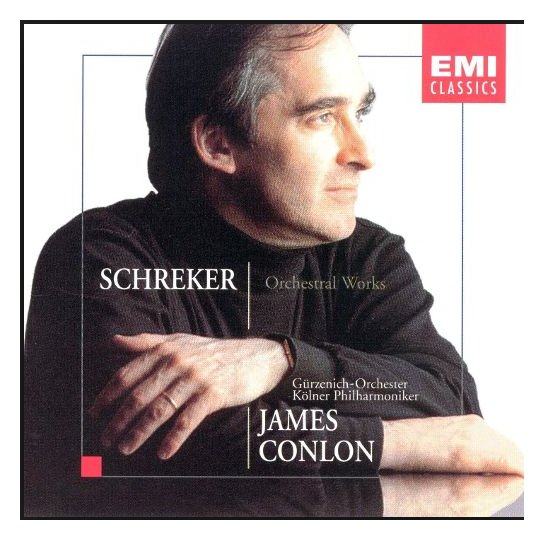 JC: Oh,
absolutely! I’m doing
this because this is also my spiritual life. This is not just my
income, and it’s not just a way to make a career. This is
what I would have done had I made no money at it! To me,
it’s an entire life. It’s a spiritual way of life, and
curiously, as you speak of the public, that’s what I could feel in the
Soviet Union. That was my perception. Perhaps Germany is
another country where I feel the public is
particularly appreciative because they listen to music more
than they’re interested in the performer. I don’t think that
the German public is so interested in who is performing. They’re
very interested in hearing what is being performed, and they listen to
music much more metaphysically than we do. For whatever reason,
they are trained to think while they
hear, to feel and to think and reflect. It’s very
interesting to talk to people in Germany about their feelings about
particular pieces of music because they will conjure up images of
nature or life experiences or philosophical viewpoints. You see
that it’s living in general, relative to other aspects of life.
That’s where I go away again from the word ‘entertainment’, and why I
don’t like it. Entertainment to me is something you do to
distract somebody from perhaps what is meaningful in life. That’s
not
my point at all. My point is just exactly the opposite.
It’s to focus other persons and focus myself on what is most
meaningful in life.
JC: Oh,
absolutely! I’m doing
this because this is also my spiritual life. This is not just my
income, and it’s not just a way to make a career. This is
what I would have done had I made no money at it! To me,
it’s an entire life. It’s a spiritual way of life, and
curiously, as you speak of the public, that’s what I could feel in the
Soviet Union. That was my perception. Perhaps Germany is
another country where I feel the public is
particularly appreciative because they listen to music more
than they’re interested in the performer. I don’t think that
the German public is so interested in who is performing. They’re
very interested in hearing what is being performed, and they listen to
music much more metaphysically than we do. For whatever reason,
they are trained to think while they
hear, to feel and to think and reflect. It’s very
interesting to talk to people in Germany about their feelings about
particular pieces of music because they will conjure up images of
nature or life experiences or philosophical viewpoints. You see
that it’s living in general, relative to other aspects of life.
That’s where I go away again from the word ‘entertainment’, and why I
don’t like it. Entertainment to me is something you do to
distract somebody from perhaps what is meaningful in life. That’s
not
my point at all. My point is just exactly the opposite.
It’s to focus other persons and focus myself on what is most
meaningful in life. 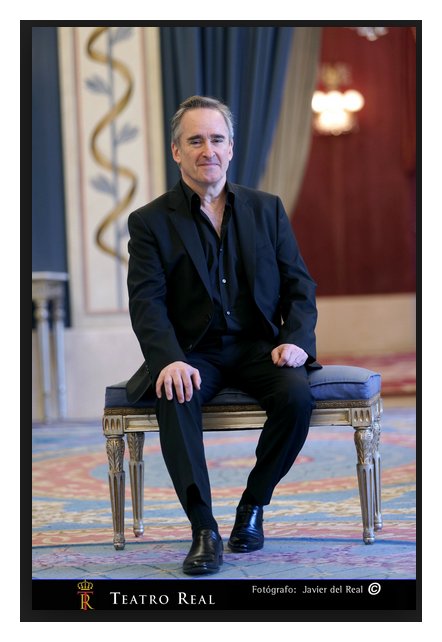 JC: [Laughs] I
don’t know. I can’t
answer that question. The
first opera I ever saw was Traviata.
My whole concept of life in
music has been with Verdi there at the inception. I
cannot imagine my life without Verdi, and I cannot imagine music
without Verdi. This is why I still find it surprising when I meet
musicians from time to time who don’t like
Verdi, or who think Verdi’s career started with Otello [his penultimate opera] and
finished
with Falstaff; or who simply
don’t understand the art form, or can’t
get interested in it. I’m not saying anything new when I say
Verdi
is not only the pinnacle of Italian music in the operatic
tradition, but he was a great dramatic prophet. For me he is the
Shakespeare of opera. He transformed this
tradition in the course of his long lifetime, and he left works of art
behind for the rest of us to contemplate forever, and for which the
beauty and the dramatic meaning and the human meaning is
fathomless. I compare him to Shakespeare not because of his
own great love for Shakespeare, which was
self-evident, but because of
all the Italian composers — well, of all the
opera composers — he seems
to be the man who was most capable of having at once empathy with his
characters and distance from them. Like Shakespeare, he can
go in and out of the first person to the third person with such ease
and such control that it is hard, at the end of Verdi’s lifetime, to
know
what Verdi really thought, or how he felt, or what his
viewpoint was on this or that. Every
character is so well delineated. Every character is so much in
entity in and out of themselves that they are real. Do they
speak for Verdi? We don’t even know. We don’t really know
what Shakespeare thought. You could quote Shakespeare endlessly,
but Shakespeare is that same type of
transcendent genius who seems to be able to empathize with everybody
and everything on a very real basis, and then also be able to pass to a
metaphysic plane so easily that they see beyond themselves,
and beyond our time, and beyond all the limitations. Is there a
secret to Verdi? No. There is only acquaintance
with Verdi, but real acquaintance with Verdi is the
pre-requisite of conducting Verdi. I’m not speaking of the
technical ability, which has to be considerable because it’s not
easy. It demands a combination of precision and heart, and
flexibility that makes rendering Verdi much more difficult than
rendering a symphony. You have to know
the voice. You have to know Italian. You have to know the
theater. But most of all, you have to know life and
humanity. Nothing is irrelevant in Verdi. Every aspect of
life becomes relevance in performing Verdi. You can’t just drop
in and
say you’d like to conduct a piece by Verdi and start. I’d say
you’d have to be born into it. I
don’t mean that literally, but you have to live with
Verdi. You have to live with the Italian operatic tradition as
well. You really
have to live with it. It’s not something you can just pay a visit
to from time to time. You have to live with it and live in it for
a
long time.
JC: [Laughs] I
don’t know. I can’t
answer that question. The
first opera I ever saw was Traviata.
My whole concept of life in
music has been with Verdi there at the inception. I
cannot imagine my life without Verdi, and I cannot imagine music
without Verdi. This is why I still find it surprising when I meet
musicians from time to time who don’t like
Verdi, or who think Verdi’s career started with Otello [his penultimate opera] and
finished
with Falstaff; or who simply
don’t understand the art form, or can’t
get interested in it. I’m not saying anything new when I say
Verdi
is not only the pinnacle of Italian music in the operatic
tradition, but he was a great dramatic prophet. For me he is the
Shakespeare of opera. He transformed this
tradition in the course of his long lifetime, and he left works of art
behind for the rest of us to contemplate forever, and for which the
beauty and the dramatic meaning and the human meaning is
fathomless. I compare him to Shakespeare not because of his
own great love for Shakespeare, which was
self-evident, but because of
all the Italian composers — well, of all the
opera composers — he seems
to be the man who was most capable of having at once empathy with his
characters and distance from them. Like Shakespeare, he can
go in and out of the first person to the third person with such ease
and such control that it is hard, at the end of Verdi’s lifetime, to
know
what Verdi really thought, or how he felt, or what his
viewpoint was on this or that. Every
character is so well delineated. Every character is so much in
entity in and out of themselves that they are real. Do they
speak for Verdi? We don’t even know. We don’t really know
what Shakespeare thought. You could quote Shakespeare endlessly,
but Shakespeare is that same type of
transcendent genius who seems to be able to empathize with everybody
and everything on a very real basis, and then also be able to pass to a
metaphysic plane so easily that they see beyond themselves,
and beyond our time, and beyond all the limitations. Is there a
secret to Verdi? No. There is only acquaintance
with Verdi, but real acquaintance with Verdi is the
pre-requisite of conducting Verdi. I’m not speaking of the
technical ability, which has to be considerable because it’s not
easy. It demands a combination of precision and heart, and
flexibility that makes rendering Verdi much more difficult than
rendering a symphony. You have to know
the voice. You have to know Italian. You have to know the
theater. But most of all, you have to know life and
humanity. Nothing is irrelevant in Verdi. Every aspect of
life becomes relevance in performing Verdi. You can’t just drop
in and
say you’d like to conduct a piece by Verdi and start. I’d say
you’d have to be born into it. I
don’t mean that literally, but you have to live with
Verdi. You have to live with the Italian operatic tradition as
well. You really
have to live with it. It’s not something you can just pay a visit
to from time to time. You have to live with it and live in it for
a
long time.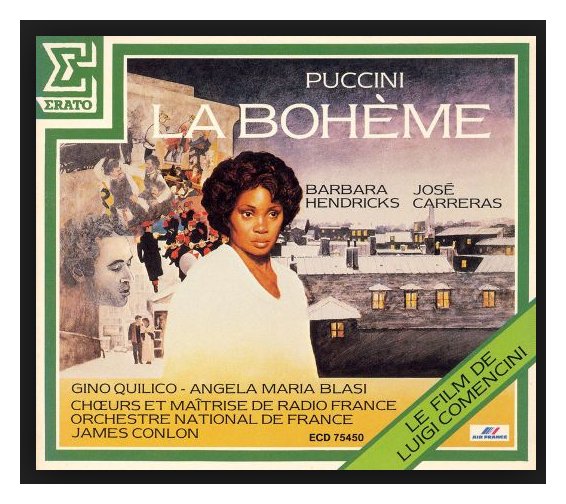 BD: Did you have any
input at all into what you see,
or just what you hear?
BD: Did you have any
input at all into what you see,
or just what you hear?|
James Conlon at Lyric Opera of Chicago
1987-88 Forza del Destino - with Susan Dunn, Giacomini, Nucci, Kavrakos, Sharon Graham, Andreolli; Maestrini, Schuler (lighting) 1988-89 - Falstaff - with Wixell, Daniels, Corbelli, Walker, Horne, Swensen, Hadley; Ponnelle (original prod)/Calabria, Schuler 1989-90 - Don Carlo - with Rosenshein, TeKanawa, Troyoanos, Hynninen, Ramey; Frisell (dir), Quaranta (des), Schuler 1992-93 - Pelléas et Mélisande - with Esham/Stratas, Hadley, Braun, Kavrakos, Minton; Galati (dir), Israel (des), Schuler |
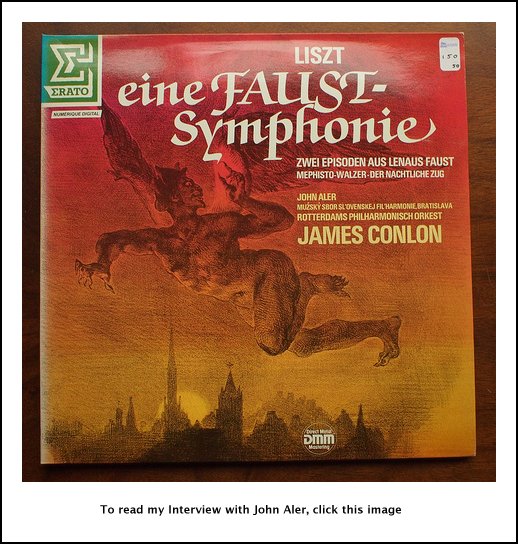 JC: Yes.
My own preference from all the versions at the moment — and
I underline
‘at the moment’ because it changes — is to do
the Italian four act
version. I have done it with the Fontainebleau act. In
fact, it was my
first opera at Covent Garden and on that occasion I did all five acts
and opened with the opening chorus, which had only then been recently
rediscovered. On that occasion I had
an
interesting experience. The soprano twice was taken ill at the
last moment, and we had to fly somebody in. In one case it was
Gwyneth Jones, and we held up the performance until her
helicopter arrived. Needless to say that kind of
experience was one where you shake hands and say, “See
you down
there.” She didn’t know Fontainebleau, so
we simply cut
it. This happened again, and Martina Arroyo
helped us out
over another performance, and she also didn’t know Fontainebleau, so we
didn’t do it. So I had an opportunity to see performances
back-to-back of
the same production with the same cast with or
without Fontainebleau. I was amazed that my instinct came up
with something that my intellect rejected, which is it is better in
four acts.
JC: Yes.
My own preference from all the versions at the moment — and
I underline
‘at the moment’ because it changes — is to do
the Italian four act
version. I have done it with the Fontainebleau act. In
fact, it was my
first opera at Covent Garden and on that occasion I did all five acts
and opened with the opening chorus, which had only then been recently
rediscovered. On that occasion I had
an
interesting experience. The soprano twice was taken ill at the
last moment, and we had to fly somebody in. In one case it was
Gwyneth Jones, and we held up the performance until her
helicopter arrived. Needless to say that kind of
experience was one where you shake hands and say, “See
you down
there.” She didn’t know Fontainebleau, so
we simply cut
it. This happened again, and Martina Arroyo
helped us out
over another performance, and she also didn’t know Fontainebleau, so we
didn’t do it. So I had an opportunity to see performances
back-to-back of
the same production with the same cast with or
without Fontainebleau. I was amazed that my instinct came up
with something that my intellect rejected, which is it is better in
four acts.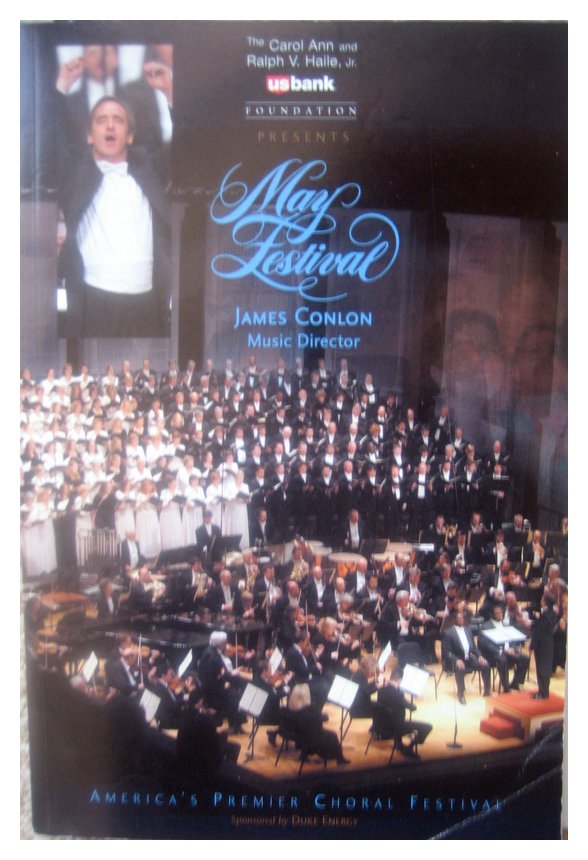 JC: It can be
fun. ‘Fun’ is too
limiting a
word because it’s a life’s activity for me, so that means it has all
the aspects of life. It can be hard, it can be easy, it can be
sad, it can be frustrating, it can be annoying, it can be uplifting, it
can be tragic, it can fun! I work all my life and so it’s like a
mosaic.
JC: It can be
fun. ‘Fun’ is too
limiting a
word because it’s a life’s activity for me, so that means it has all
the aspects of life. It can be hard, it can be easy, it can be
sad, it can be frustrating, it can be annoying, it can be uplifting, it
can be tragic, it can fun! I work all my life and so it’s like a
mosaic.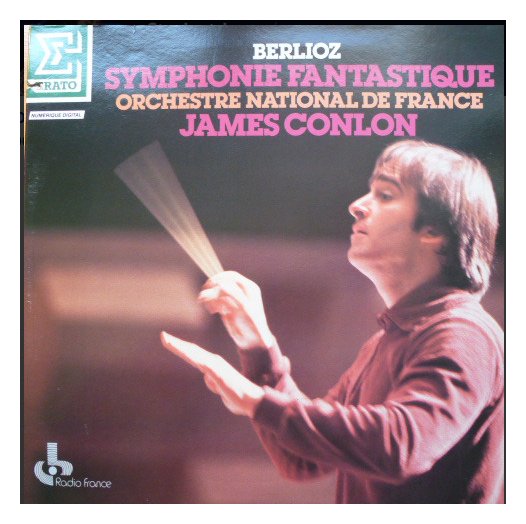 BD: Is that what
we’re getting away from now — are composers
trying to write for the ages, instead of writing for today?
BD: Is that what
we’re getting away from now — are composers
trying to write for the ages, instead of writing for today?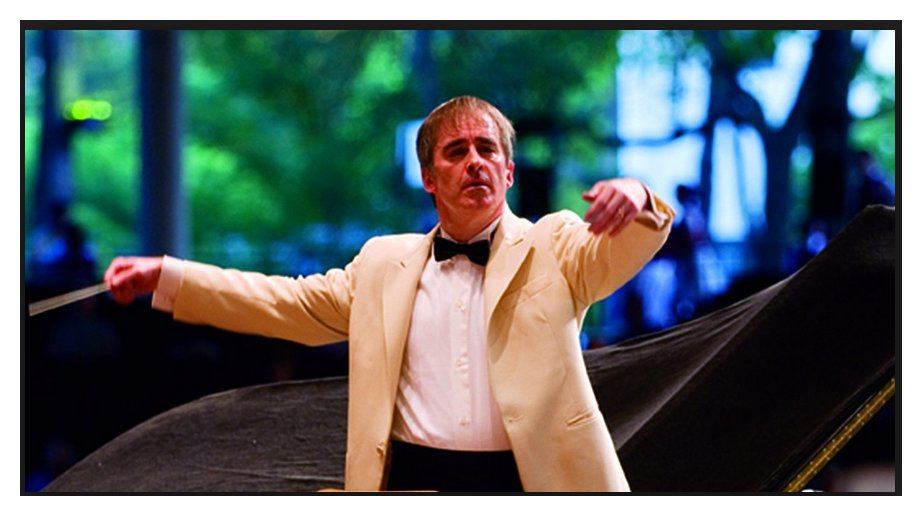
© 1987 Bruce Duffie
This conversation was recorded in Chicago on January 26, 1988. Portions were broadcast on WNIB the following July, and again in 1989, 1990, 1995 and 2000. This transcription was made in 2016, and posted on this website at that time. My thanks to British soprano Una Barry for her help in preparing this website presentation.
To see a full list (with links) of interviews which have been transcribed and posted on this website, click here.
Award - winning broadcaster Bruce Duffie was with WNIB, Classical 97 in Chicago from 1975 until its final moment as a classical station in February of 2001. His interviews have also appeared in various magazines and journals since 1980, and he now continues his broadcast series on WNUR-FM, as well as on Contemporary Classical Internet Radio.
You are invited to visit his website for more information about his work, including selected transcripts of other interviews, plus a full list of his guests. He would also like to call your attention to the photos and information about his grandfather, who was a pioneer in the automotive field more than a century ago. You may also send him E-Mail with comments, questions and suggestions.